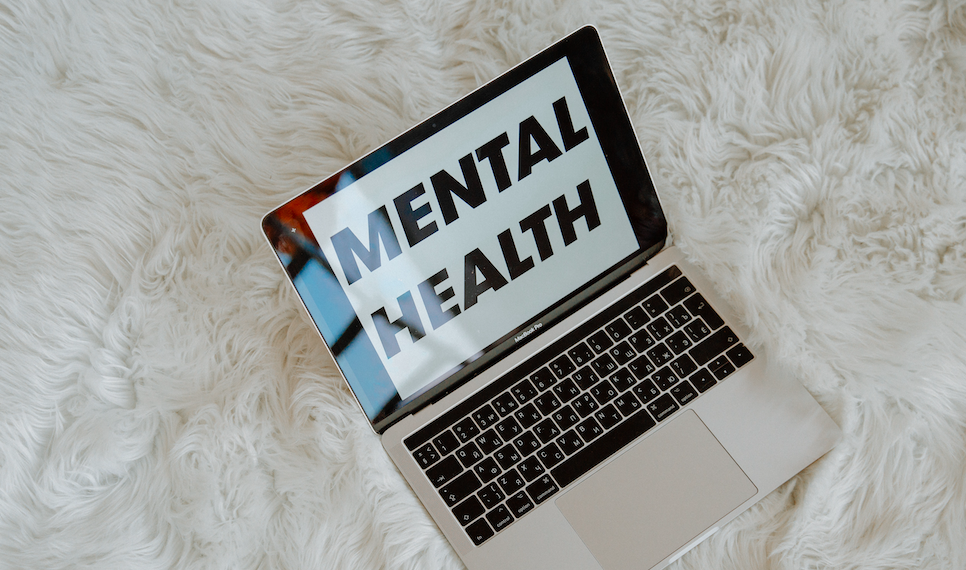If you’re feeling lost about diagnosis and treatment of depression, read this. The first step is to seek help.
It is common to feel lost and confused about what actually is a diagnosis of depression versus feeling sad, and how to get treated for depression.
In our previous post, we discussed signs of depression and related risk factors. More than half the people who have depression may not even recognize the symptoms and even less receive formal a diagnosis or engage in treatment. Below is some helpful information to start the task of getting the help you may need.
Sign & Symptoms of PCOS Depression
Depression is so much more than just feeling sad. Although it can hard to describe what it feels like to be depressed, depression can affect you physically, social and psychologically.
Here are some of the signs and symptoms of PCOS depression:
- Lack of motivation
- Constant fatigue and tiredness
- Feelings of loneliness
- Disturbed sleep cycle
- Anxious thoughts
- Mood swings
- Lack of control over thoughts and emotions
- Loss of appetite
Symptoms of depression can vary and how one deals with these symptoms. Instead of staying in denial, acknowledge your feelings and understand the root cause of it. PCOS and depression can both affect your quality of life so it is important to manage both these conditions with the right professional care.
Tips to diagnose for PCOS depression
Perhaps you’ve noticed some significant changes in your mood and behaviour. You do not really need to know more than that to seek professional advice. Just the fact that you are feeling “not like your normal self” or “off” is enough to take the first step and consult with a psychologist, counsellor, or psychiatrist. They will be the ones who can help give you a diagnosis if you need one and ultimately treat your symptoms. Your provider will ask a series of questions. A psychiatrist may also ask you to get blood tests done to rule out an underlying medical conditions.
Here is some information that your provider will want to know:
Antidepressants are common medical treatments for depression, especially for those with severe forms of the condition. Antidepressants can bring about mood stability or improvements in the first or second month of use, but typically require longer use to produce significant benefits. Often medication is prescribed in conjunction with a psychotherapy treatment plan for maximum effectiveness.
How PCOS Cause Depression in Women
Depression in PCOS is a common mood disorder experienced in many women with PCOS. Since the symptoms of depression can show up in many ways, it can often go overlooked and undiagnosed until you speak to a doctor.
Although the exact cause of depression in PCOS is unknown, the underlying hormonal imbalance can not only affect your physical health but also affect your mental health too. And not just hormonal imbalance, the fear of developing complications, pressure to lose weight, social stigma around PCOS can all contribute to feelings of stress and anxiety. PCOS also affects your physical appearance, dealing with weight gain, acne, hirsutism can take a toll on your mental health too.
Risk of Having PCOS and Depression
PCOS and depression can both affect you in various ways including physically, socially and psychologically. Leaving PCOS untreated can result in a range of health complications such as diabetes, infertility and even cancer. Depression can interfere with your everyday activities such as sleeping or eating and make it difficult for you to function both physically and mentally. Both these conditions can also affect your relationship with your partner, friends or family.
Lifestyle modifications such as eating healthy, exercising regularly, managing stress, taking care of mental health and getting good quality sleep, can help you manage both PCOS and depression. It is advised to speak to a doctor who can help you understand your root cause and give you personalised treatment plan that suits your symptoms and concerns.
Expert’s advice to manage PCOS and Depression
Taking care of your mental health is as important to your PCOS treatment journey. Remember to prioritise your mental health and to seek help when required. If it is important to your mental well-being, it deserves to be on your to-do list.
- Eating a well balanced, nutritious diet that is rich in wholesome foods. Limit processed and packaged foods
- Regular physical activity can boost happy hormones and keep you fit. Even a 30 minute walk everyday can help you improve mental health
- Practice relaxation techniques such as meditation, mindfulness, journalling
- Take up a hobby or something that helps you unwind
- Catch up with a friend, join a group class, take your pet for a walk or simply spend time with yourself for self care
- Speaking to a therapist or a counsellor can help you channel your feelings and be in better control of your emotions and thoughts so don’t hesitate to seek the right care
- When these feelings and sensations began and how long they have lasted for
- How has your life been impacted as a result of these feelings
- If your family has a history of depression or other mental disorders
- If you have a history of drug or alcohol use
- The environmental or cultural stressors you may be currently experiencing in your life
[/vc_column_text]
PCOS Depression Treatment For Women
There is no one proven way to treat depression. Your ultimate treatment plan will be unique to you and will address your specific feelings and sensations. Broadly speaking, however, most common treatment plans often fall into these two categories: psychotherapy and medication
- Psychotherapy
It is an effective front-line treatment option for common mental health problems like depression. While there are various types or modalities of therapy, the common goal across all types is to help you understand your specific issues and learn strategies to effectively manage those issues. Modalities may differ in their approach, technique and/or area of focus. Ultimately, therapy can promote well-being by enhancing healthy and adaptive thoughts and behaviors, promoting effectiveness in ability to cope to future event s
- Medication
Antidepressants are common medical treatments for depression, especially for those with severe forms of the condition. Antidepressants can bring about mood stability or improvements in the first or second month of use, but typically require longer use to produce significant benefits. Often medication is prescribed in conjunction with a psychotherapy treatment plan for maximum effectiveness.
How PCOS Cause Depression in Women
Depression in PCOS is a common mood disorder experienced in many women with PCOS. Since the symptoms of depression can show up in many ways, it can often go overlooked and undiagnosed until you speak to a doctor.
Although the exact cause of depression in PCOS is unknown, the underlying hormonal imbalance can not only affect your physical health but also affect your mental health too. And not just hormonal imbalance, the fear of developing complications, pressure to lose weight, social stigma around PCOS can all contribute to feelings of stress and anxiety. PCOS also affects your physical appearance, dealing with weight gain, acne, hirsutism can take a toll on your mental health too.
Risk of Having PCOS and Depression
PCOS and depression can both affect you in various ways including physically, socially and psychologically. Leaving PCOS untreated can result in a range of health complications such as diabetes, infertility and even cancer. Depression can interfere with your everyday activities such as sleeping or eating and make it difficult for you to function both physically and mentally. Both these conditions can also affect your relationship with your partner, friends or family.
Lifestyle modifications such as eating healthy, exercising regularly, managing stress, taking care of mental health and getting good quality sleep, can help you manage both PCOS and depression. It is advised to speak to a doctor who can help you understand your root cause and give you personalised treatment plan that suits your symptoms and concerns.
Expert’s advice to manage PCOS and Depression
Taking care of your mental health is as important to your PCOS treatment journey. Remember to prioritise your mental health and to seek help when required. If it is important to your mental well-being, it deserves to be on your to-do list.
- Eating a well balanced, nutritious diet that is rich in wholesome foods. Limit processed and packaged foods
- Regular physical activity can boost happy hormones and keep you fit. Even a 30 minute walk everyday can help you improve mental health
- Practice relaxation techniques such as meditation, mindfulness, journalling
- Take up a hobby or something that helps you unwind
- Catch up with a friend, join a group class, take your pet for a walk or simply spend time with yourself for self care
- Speaking to a therapist or a counsellor can help you channel your feelings and be in better control of your emotions and thoughts so don’t hesitate to seek the right care




















